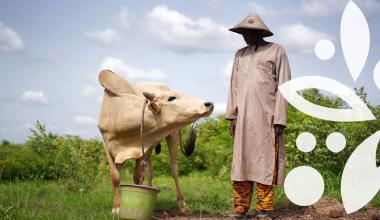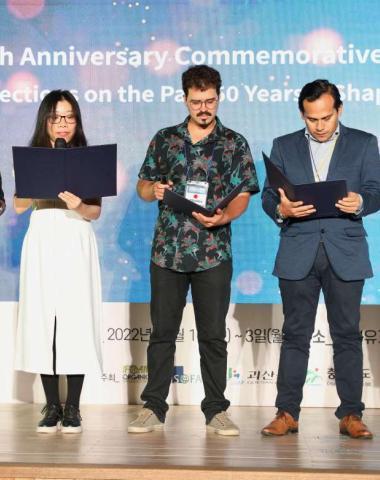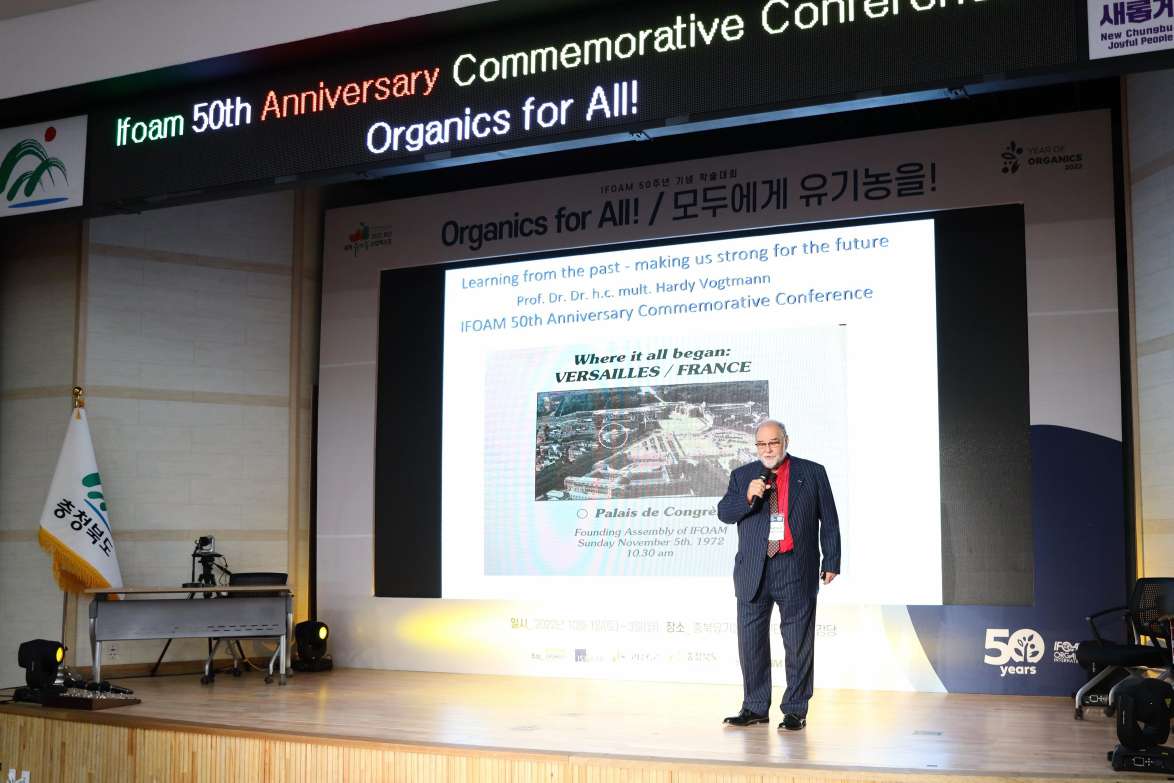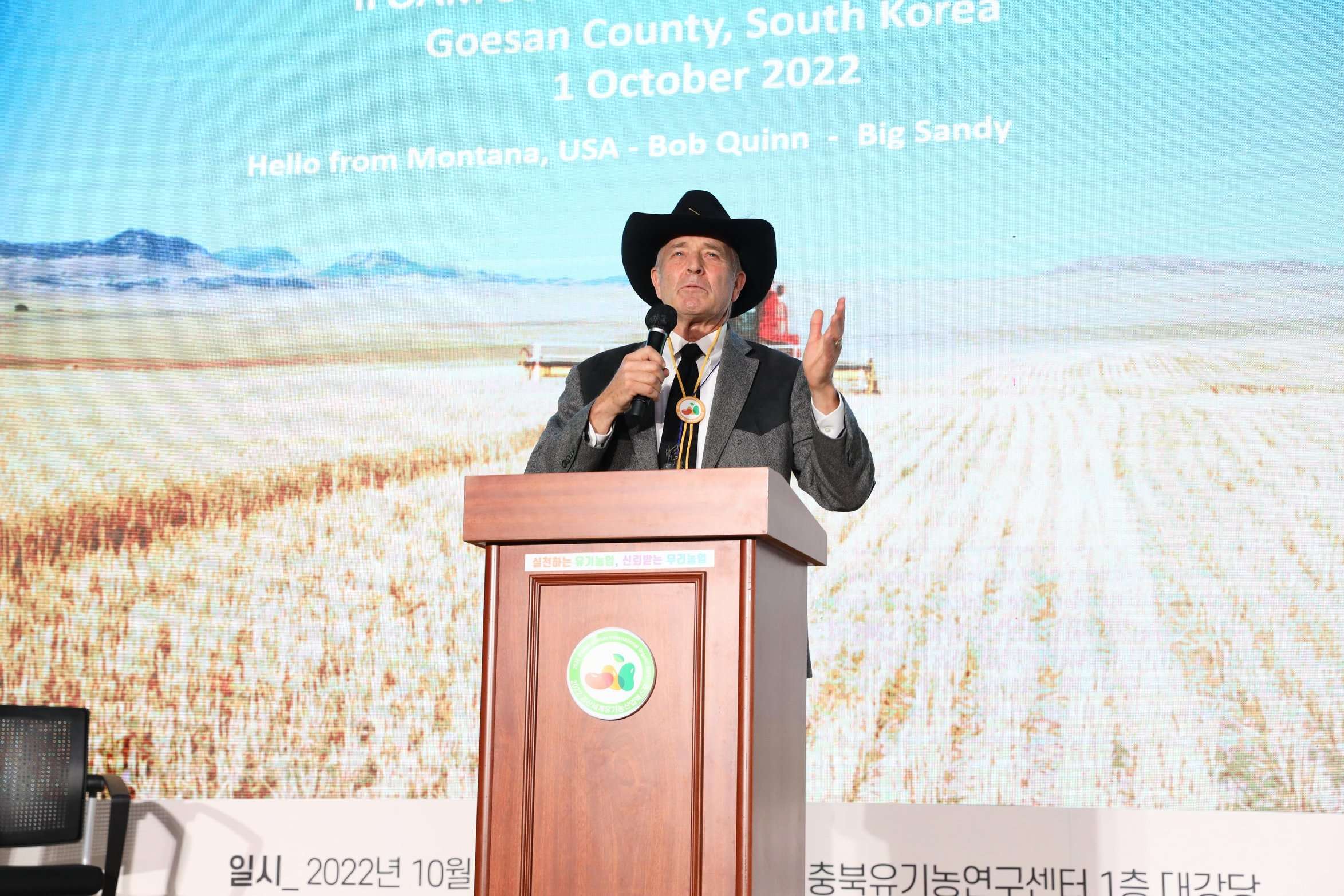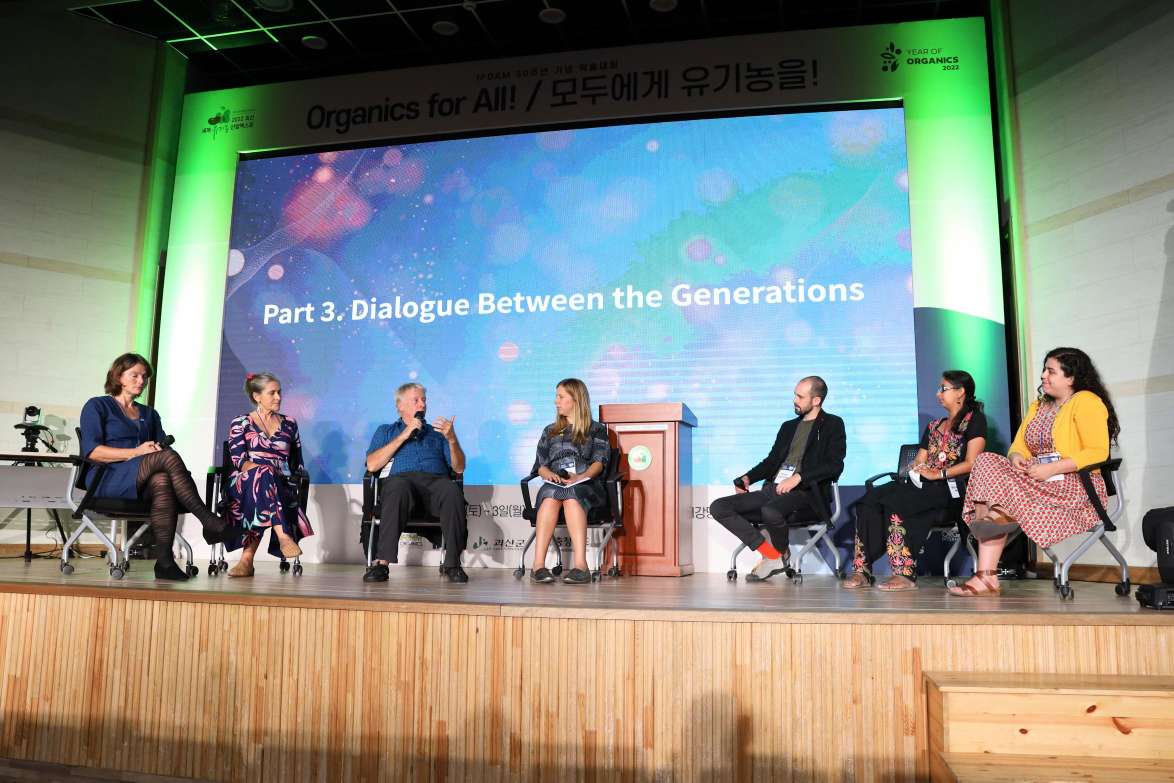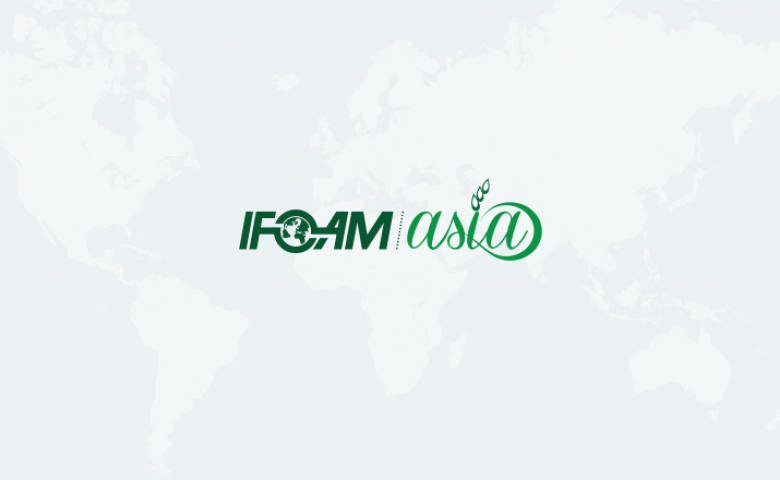From 1-3 October 2022, the organic movement came together in Goesan County, South Korea, to celebrate 50 years of IFOAM - Organics International. The anniversary conference was attended by current and former World Board members and presidents, representatives of regional bodies and sector platforms, and many organic pioneers and youth leaders.
Thinking back to the founding of IFOAM - Organics International, Honourary President Hardy Vogtman reminisced: “The first General Assembly had about 40 people and raised 2,600 Swiss francs to get things going at the FiBl office in Switzerland.”
Fifty years later, he believes that “we do not just need to transform our food systems. We need to transform society!”
Reflecting on the many challenges ahead, former World Board Member André Leu said: “Being able to do the impossible is a challenge I always want to take on. Industrial agriculture is a threat to our planet, and we need to get across the need for an organic world and ensure we have a future.”
Bob Quinn, organic farmer and founder of Kamut, described the skepticism he faced when he decided to go into organics: “Was I going to go broke first or give up? That was the talk in the coffee shop.”
Young organic leaders shared what motivated them to become part of the organic community. World Board Member Sarah Compson shared: “I came to organics after reading silent spring. The organic movement is doing the impossible. The challenge is building bridges.”
Thales Bevilacqua Mendonça, an organic farmer representing INOFO, shared, “I am always asking: how we can have a positive impact on our world? And so I learned about agroforestry on YouTube.” He now runs a successful organic farming business.
Congress participants also worked on a conference declaration, OrganicsForAll, on how to shape the future we want.
OrganicsForAll means growing food in a way that nourishes soils and animals, preserving biodiversity, and tackling climate change. It means shaping a food system that pays all those in the organic value chain fairly; farmers, farm workers, processors, traders, transport industries, chefs and cooks, and consumers.
It means giving everyone access to organic knowledge and safe, organic food. Together, the congress participants came up with 10 actions that can help achieve this.
OrganicsForAll Declaration
- Revive the concept of holistic organic agriculture. Make organic farming the driving force to build resilient eco-regions and communities.
- Value indigenous peoples’ knowledge and being, and engage with them to deepen the common understanding of organic agriculture, culture, and lifestyle.
- Facilitate access to land by creating clearing houses for interested land leasers and potential leases, encouraging the establishment of organic to feed local populations.
- Increase capacity building and education at all levels (youth to post-grad and mentorship programs) to empower organisations and individuals to drive the organic transition.
- Build on the knowledge and know-how of farmers and other stakeholders, and expand organic entrepreneurship, by providing comprehensive training, facilitating access to context-adapted information and opportunities to exchange with peers.
- Actively use the current shifts in financial regulations that advance environmental, social, and governance investing criteria, to motivate investments in organic agriculture, processing, services, and trade.
- Develop ambitious organic policy at the national and local level with goals, investments, and actions to upscale organic farming and research and accelerate organic market development, including organic public procurement.
- Utilise organic agriculture actively in holistic policy solutions to crises in climate change, biodiversity loss, and food security, and shift public subsidies to sustainable practices.
- Coordinate and harmonise all policies for organic throughout all ministries, agencies, and departments at all levels of government.
- Mobilise with market actors to actively promote the value of organic products, develop strong and fair value chains, and make healthy organic food and products available for all.
To accelerate this, IFOAM - Organics International will support, engage and inspire governments, organisational allies, and the business sector, as well as strengthen our member organisations as agents of change in the fields, supply chains, policy, and marketplace.
IFOAM - Organics International thanks Chungbuk Province, Goesan County in South Korea, and IFOAM Asia for making this congress possible!
Download the full conference declaration here
